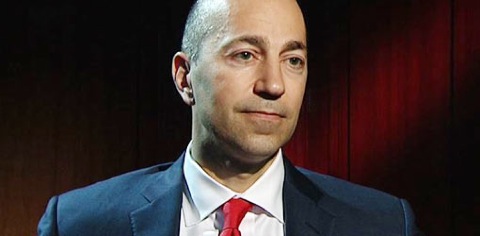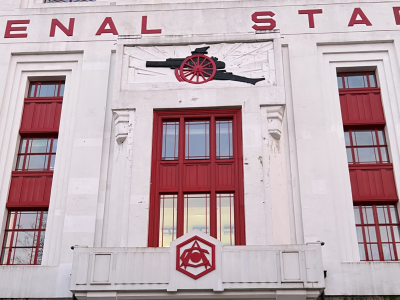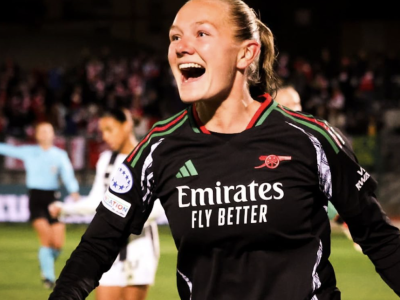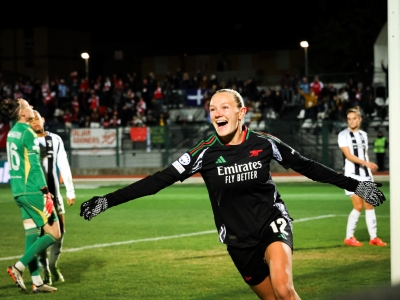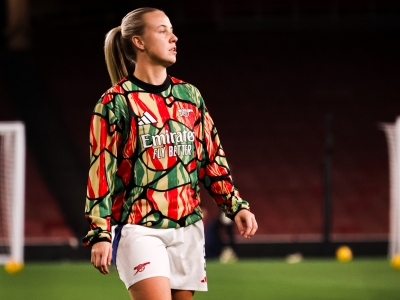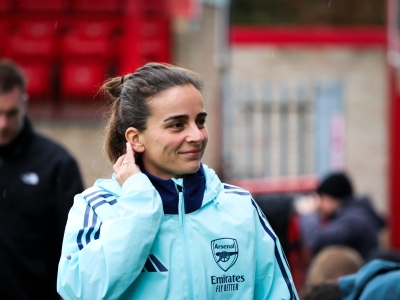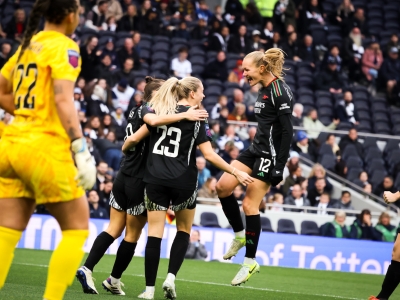Ivan Gazidis is an impressive man. He held court for just over an hour with AST members on Monday night. He answered all the questions with a rare candour; I don’t think he ducked any questions, he tried to be as detailed as he could in his answers with giving out “trade secrets” (he wouldn’t tell us what the transfer budget was!) and he did with a frankness and honesty that was, at times, disarming.
I didn’t necessarily like everything he said (like many I would have liked to have heard firm commitments about new players, but being honest and realistic, that was never going to happen), but it is clear that we have a man in charge of the club’s operations who thinks strategically. He understands what is and will be required for the club to succeed in the current economic climate and the changing business space in which the club operates.
Some background first: he is a South African by birth (he noted that some people think he is American), the son of a former member of the African National Congress whose family was sent into exile. This followed his father having been imprisoned in the old apartheid South Africa. His family settled in Edinburgh, and lived in various places around the UK, including Portsmouth, which where Ivan attended his first game, aged 5. He is a lawyer who, after working in the City of London, was offered the chance to help set up Major League Soccer (MLS) in the USA. He started work on the MLS before the USA ’94 World Cup.
He and his colleagues drew up the blueprint for an all-new league based on what he referred to as the “Single Entity Model”. This approach is very different to what we know in England; in the MLS, it is the league itself which signs all the players (the MLS is the Single Entity) and teams then choose their players in something akin to a draft. Moreover, there is a salary cap, so no one team can simply outbid the others for the best players. In theory at least this means all teams are equal, irrespective of their location and underlying market, ie potential support.
Within this structure, Gazidis explained how he was responsible for all player negotiations and acquisitions. He said the league brought in around 70 international players, especially from South America, a year, as well as negotiating domestic player contracts. As a result he claims to be the person who has handled more transfers than anyone else in the football world. He told of how he conducted telephone negotiations with one Colombian agent who was based in a jail cell.
Gazidis was keen to emphasise the robustness of the business model underpinning the MLS, noting how the last two franchises have recently been sold, each for around US$40m. The impression gained from this statement, and from others to do with the role of “cap-ologists” and specialists from other business disciplines in US soccer and sports in general, is that Gazidis will be bring in a great deal of modern management practice and new business discipline to the running of Arsenal. He will also bring the long view to the running of Arsenal, more of which below.
He went to say he had been happy in New York running the MLS; but in October last year the chance to run Arsenal came out of the blue, adding that taking over at Arsenal was much more of an emotional decision than a strictly rational one. He claims to have been a major fan of the way Arsenal play from long before his arrival (the over 30s team he played for in Connecticut even played in pirated Arsenal strips!) – clearly Arsene Wenger had made a major impact on Ivan Gazidis from afar. He added that Barcelona was the only other club which played football in the way Arsenal did (and was, I think, the only other club he would have joined). It was the chance to run a club with timeless historic values, but values which he believes have a long-term future relevance and that plays some of the most technical football which convinced him to leave America and come to North London.
All in all, I think he started well in his introduction, seeking to demonstrate his commitment and love for the club. He had a reputation of being fan-friendly – he lived up to that one. He was especially keen to emphasise his empathy with and understanding of the fans’ position. I had also been told he was a straight talker – on most issues, I felt he lived up to this reputation as well. On more than one occasion in his talk he said that fourth place and two semi-final places were not good enough. And moreover, he would ensure that everything he worked on from an organisational basis would be orientated toward with helping the first team improve.
The introduction over, the floor was opened for questions.
Question 1, from our own editor, focused on trying to get a statement on whether it was Wenger or the board who were vetoing large expenditure on players, or whether in fact the club had no money. Not surprisingly, Gazidis didn’t answer this question explicitly, instead insisting how Wenger knows what is available and works within this budget. Because, the board and Wenger are at one with regard to the strategy being followed by the club, namely the self sustaining model, there was no conflict. Arsenal was or is different to other clubs in that it doesn’t go into debt to fund player purchases and doesn’t have a rich “sugar daddy” like Chelsea or Manchester City. At other points he referred to the financial leveraging which has been applied to Manchester United and Liverpool. Clearly, Ivan Gazidis does not believe these models will last forever.
Gazidis went on to explain his view that at most clubs, managers tried to position themselves as fighting for more funds to buy players while the board tried to position themselves as being the ones providing the funds; the situation at Arsenal was different. The board and manager are as one, so there is no contradiction. The manager doesn’t ask the board for more money because he knows what there is and is happy to work within these constraints, although the constraints were not specified. We were not told how much money would be available in the summer (hardly surprising really), but Gazidis did seem to imply that players would be bought in the transfer window. At one point later, he spoke of his plans to apply his laser focus on the performance of the team.
He went on to say that we, as fans, had a fairly fundamental decision to make, namely do we accept the Arsenal self-sustaining model? Assuming we did, then the next issue was for the board and manager to spend the available money efficiently. In practice, however, we – the fans – don’t really have to make any decision as such. We have to accept the strategy embarked on by the board. We know that Arsenal will operate according to this self-sustaining model (we can assume therefore that the “offer” from Alisher Usmanov to pay off some of the club’s debt to free up money for player purchases will be rejected). In practice, the message was – “we have a budget, I won’t say what it is, but you can be sure that I will be looking at how this budget is used and I will look for any opportunity to improve the efficiency with regard as to how we spend it.” The issue of efficiency of spending will be covered below.
Question 2 raised the issue that given our wage bill is now 50% higher than it was five years ago, was the club getting value for money? In his first disarming reply, Gazidis admitted that he didn’t know. I suspect the real answer is that he doesn’t think Arsenal has been as efficient as he would like. He used this question as the chance to talk about “cap-ologists”, specialist analysts who are employed by NFL teams in the US to look at whether they are maximising the effectiveness of their salary budget which is capped. Clearly he sees Arsenal’s strict budgeting as akin to having its own salary cap and therefore suitable for applying the science of “cap-ology”. It will take sometime for us to see what this really means in practice, but I think we can expect to see Arsenal increasingly run as a serious business.
Later on Gazidis talked about learning from the insurance industry regarding how it manages risk – all player contracts carry risk seemed to be his message. I infer that he clearly sees a number of the contracts at Arsenal as risky; I wonder what this means for Rosicky (injured for a year), Adebayor (on a huge contract, but clearly less than committed – my words not Ivan’s) and others. It’s not clear how future contract management will change, but change it will.
To me, the most interesting aspect of his talk was the number of times when he made it clear that strategic business management techniques would be applied to Arsenal and a modern, efficient business organisation would be put in place. As much as he was keen to praise the success of the board in having made the transition to the new stadium, there was plenty for Arsenal to do. And Ivan Gazidis was going to do it.
To start with, three new senior positions would be filled. Gazidis explained the roles in response to a question from yours truly:
• Arsenal doesn’t have an in-house lawyer; as a result, all its legal work is done by Slaughter & May, a top City firm; undoubtedly this meant the club receives a gold-plated service, but the club pays royally for it. Gazidis likened it to using a Rolls-Royce to do the shopping. Clearly appointing an in-house lawyer is an example of Gazidis’ drive for efficiency in action.
• Similarly, and this was something which clearly surprised Gazidis, Arsenal – a company with 400+ employees – does not have a Human Resources director. He clearly sees this as a serious issue; whether the appointment of an HR specialist will have much impact on the playing side of things is another matter – but perhaps an HR director will mean job definitions and expectations for the customer-facing employees (box office, Club Level in general and others) will be improved and we will see an improvement in these areas.
• And thirdly, Gazidis is looking for “very smart” people capable of strategic thought; at first I thought he wanted one person, but I wouldn’t be surprised to see more than one arrival here. He wants to develop a comprehensive, long-term strategic business plan developed for Arsenal. He claimed that few clubs have this, but wants Arsenal to be a trail-blazer here. In some ways it is surprising that football clubs have grown to be such large entities without strategic plans in place – Gazidis wasn’t sure he had all the answers yet, which is why he was still in listening and learning mode and why he wanted some “smart people” alongside him; of course we could take this to be an implicit criticism of the quality of the people in the club, but perhaps that is unfair. Clearly he wants to take the club forward in a different way (we have to assume the directors want this too!) and he will bring in people from outside football to help him to do this. It was interesting that at this point he emphasised that one of the roles of the strategic planner would be to look at the how the player pool was managed. This could be interesting!
Gazidis went on to praise the way in which the club had made the move to the new stadium, making it clear that – having seen a number of MLS clubs move to their own purpose-built stadia and the amount of work this involved – he saw the club’s success in having done this as a major credit. At the same time, he emphasised that this had meant that a great deal of the club’s efforts in recent years had been on the short term; there had been a corresponding lack of long term focus. This would clearly change.

